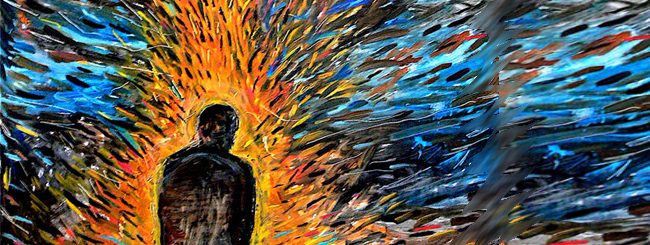Moses on the line
Author:
Chabad Intown
Date:
February 24, 2016
Tags:
Israel, Moses
Three bonds are tied one to the other; Israel, Torah and The Holy One Blessed Be He. The Zohar
In this weeks Torah portion we read of the Big sin – the making and the worshipping the Golden Calf. After having revealed Himself and having given the Torah only 40 days earlier at Mt. Sinai G-d chooses a drastic punishment for the Jewish People – Destruction! Moses steps forward and tells G-d, if You choose to forgive them great, if not take me out of the Book which You have written (the Torah).
While seemingly noble a gesture, what was Moses trying to do? It seems somewhat petty and superficial for Moses to be trying to force G-d’s hand. After all he was Moses who knew G-d on a pretty intimate level, he surely knew you don’t “play games” with G-d!
Moses’ greatness in our history is defined by his essential connection to Torah as the Book is known as Toras Moshe Avdi – the Torah of Moses My servant. But greater than his connection to Torah is his connection to the Jewish people.
The Midrash says that “Israel preceded the Torah”. The Jewish People therefore have a greater connection to G-d than even the Torah.
Moses leadership is defined as follows: “Moses is Israel and Israel is Moses”.
What Moses was saying was if your Torah doesn’t have space for forgiveness for a sin of this magnitude then don’t look at my greatness vis a vis Torah. Look at my connection to the Jewish people as it stands alone.
Once G-d would look at that connection it would demonstrate the essential bond that exists between each and every Jew and the Almighty that transcends even the Torah.
Did G-d know this before? Of course, but the story played out this way to teach US valuable lessons:
- Forgive yourself. You are always a child of G-d and therefore even when you may stray from His Torah or weren’t raised in the Tradition of the Torah your worthiness is untouched and unfazed because you are connected to something that is even higher than Torah.
- Leadership is about sacrifice. Moses put himself and that which had defined him until that point and would define him for the rest of history (the bearer of the Torah) on the line. He did this for his people. If his deepest bond with his people wasn’t demonstrated the rest of it was worth nothing.
- Every generation has a Moses and if we choose to look towards the Moses of our generation we are given enlightenment and guidance in how to live our lives.
What are other lessons you might learn from this story?
Have a great Shabbos!

Enjoying what
you've read?
Here's more.

Standing With the Water Carriers
Chabad Intown
This past week we experienced a calling to open our homes, our lives to share with others. People were...













